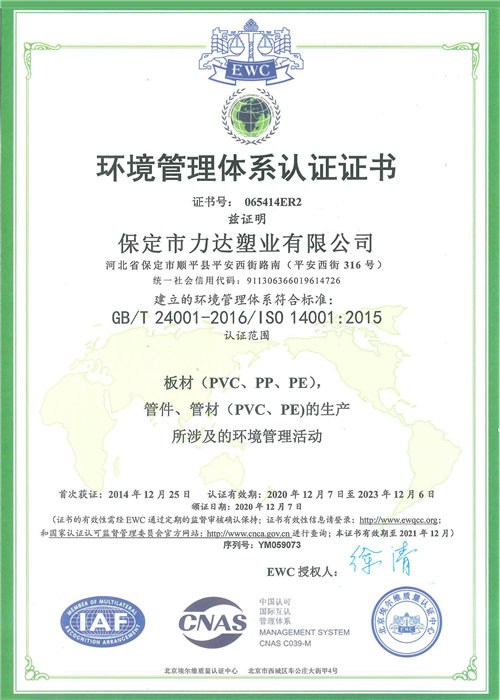Jul . 27, 2024 13:57 Back to list
Innovative Solutions for Flexible PVC Irrigation Pipe Systems in Modern Agriculture Practices
Flexible PVC Irrigation Pipe A Game Changer for Sustainable Agriculture
In recent years, the agricultural sector has been under increasing pressure to enhance productivity while simultaneously conserving water resources. One innovative solution that has gained popularity among farmers and agricultural engineers is the use of flexible PVC irrigation pipes. These pipes not only revolutionize the way water is distributed in fields but also contribute significantly to resource efficiency and sustainability.
What is Flexible PVC Irrigation Pipe?
Flexible PVC (Polyvinyl Chloride) irrigation pipes are lightweight, durable tubes designed to transport water efficiently from a source to various points in agricultural fields. Unlike traditional rigid pipes, flexible PVC pipes can bend and conform to the landscape, making installation easier and more adaptable to various terrains. Their flexibility allows for more effective use of space, enabling farmers to design irrigation systems that suit the unique topography of their land.
Advantages of Using Flexible PVC Irrigation Pipes
1. Durability and Longevity Flexible PVC pipes are resistant to corrosion and degradation, which are common problems with metal and other materials. This resilience extends the lifespan of the irrigation system, reducing the need for frequent replacements and thus lowering overall costs.
2. Cost-Effectiveness Due to their lightweight nature, flexible PVC pipes are cheaper to transport and install compared to traditional materials. Additionally, they require fewer fittings and joints, which translates to a decrease in labor costs during installation.
flexible pvc irrigation pipe

3. Reduced Water Waste The design of flexible PVC irrigation systems allows for precision watering, significantly reducing water wastage. Farmers can implement targeted irrigation techniques such as drip or subsurface irrigation, which deliver water directly to the plant’s roots, enhancing water use efficiency.
4. Easy Installation and Maintenance Installation of flexible PVC pipes is straightforward and does not require specialized tools or extensive training. Their flexibility makes them suitable for various configurations, allowing farmers to adapt the system as needed. Maintenance is equally simple, as any damaged sections can be easily replaced without extensive disruption to the overall irrigation system.
5. Environmental Impact With the growing emphasis on sustainable farming practices, flexible PVC irrigation pipes align perfectly with eco-friendly initiatives. By minimizing water usage and maximizing efficiency, these pipes contribute to the conservation of precious resources, aiding in the fight against climate change and promoting sustainable agricultural practices.
Applications in Agriculture
Flexible PVC irrigation pipes are versatile and can be utilized in various agricultural settings. Whether in small family farms or large commercial operations, these pipes are effective in delivering water to crops, orchards, and even nurseries. They can be employed in various irrigation techniques, including surface, subsurface, and drip irrigation systems, adapting to the specific needs of different crops.
Conclusion
As the global population continues to rise and the demand for food increases, the importance of efficient irrigation systems cannot be overstated. Flexible PVC irrigation pipes represent an innovative solution that addresses many of the challenges faced by modern agriculture. Their durability, cost-effectiveness, and environmental benefits make them an ideal choice for farmers looking to expand their operations while conserving resources. By embracing technologies like flexible PVC irrigation pipes, the agricultural sector can move closer to achieving sustainability, ensuring a healthier planet for future generations.
-
HDPE Pipe Fittings: Durable, Leak-Proof Solutions
NewsAug.16,2025
-
Premium CPVC Sheet: High-Temp & Chemical Resistant Solutions
NewsAug.15,2025
-
Durable PPR Pipe for Hot & Cold Water Systems - Easy Install
NewsAug.14,2025
-
Durable HDPE Sheet | Versatile & Impact-Resistant Plastic
NewsAug.13,2025
-
Premium PVC Soft Sheets: Clear, Flexible & Durable
NewsAug.12,2025
-
Premium PVC Round Rods: Durable, Chemical Resistant, Easy to Machine
NewsAug.11,2025

